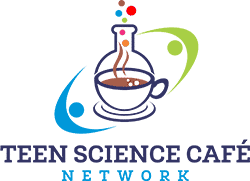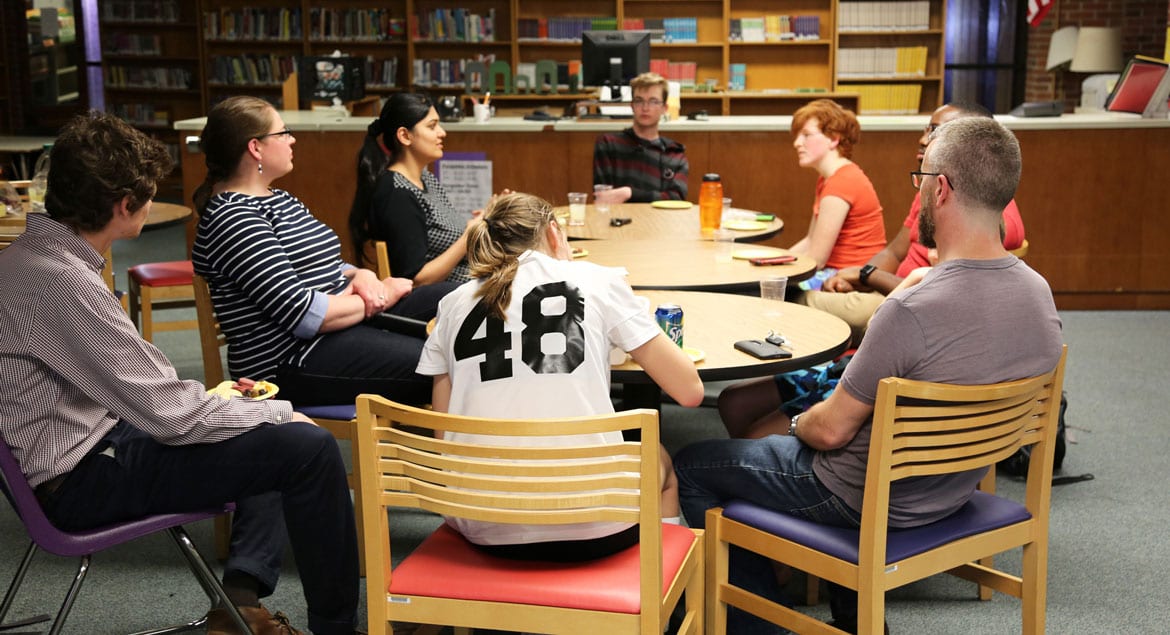The newly-launched Discovery Teen Science Café gives Madison high school students the opportunity to research, plan and host events that connect them with scientists working on topics the students are most interested in.
The Teen Science Café Network (TSCN) has almost 100 members across 43 states, but the Discovery Teen Science Café is the first in the state of Wisconsin.
Jerrod Buckner, assistant outreach coordinator at the Morgridge Institute and acting TSCN leaders came to Madison for a Discovery Building event and were impressed with the science programming efforts.
“We’re science-focused, and they really liked how we do our programs,” Buckner says. “They thought it would be awesome to have us join the [TSCN]. We have a strong network in our community and can already connect to five different high schools in the city of Madison.”
Part of the philosophy behind teen science cafés is that the teens should have a sense of ownership over all aspects of the events. Rosalie, a student at Madison East High School, says she was drawn to be part of the Discovery Teen Science Café planning group for that very reason.
“I’m interested in learning about science, and I think this is a really cool opportunity to steer where we want to go with an event, instead of having other people just telling us and organizing it,” Rosalie says.
Val Blair, education and outreach manager at Morgridge, echoed these sentiments.
“We make a lot of outreach programs for students and usually create it ourselves, then invite people to participate,” Blair says. “With this, I’m excited for the students to have an opportunity to pick a topic and help shape the program and their experience.”

Over lemonade and snacks in the East High Library Media Center, the teens and other guests picked the brains of these young scientists, learned how they form research questions and discussed the best methods to answer them. Deshpande is exploring what motivates people to adopt solar energy, while Guzmán Colon tracks the movements of mongooses in Puerto Rico in an effort to vaccinate the population against rabies.
The kickoff café abided by another core tenet of the TSCN events: they should not be lectures, rather, they should encourage conversation and engagement between the scientists and the audience. With 12 attendees (including the scientists) at the table, it was an intimate environment and questions and conversation flowed freely.
In this case, conversation moved through everything from energy research and the politics of climate change to cultural differences in education and alternate career paths for those with science backgrounds.
Buckner says that one student suggested they’re using the Teen Science Café as a way to learn about science careers to help them hone which one they might like to pursue.
“We hope to give students an opportunity to explore a wide variety of topics and meet scientists at different stages of their careers,” Buckner says. “We have intentions of expanding this program to reach students from other MMSD schools, but will use what we learned from this pilot at East to help us shape the program as it grows.”
